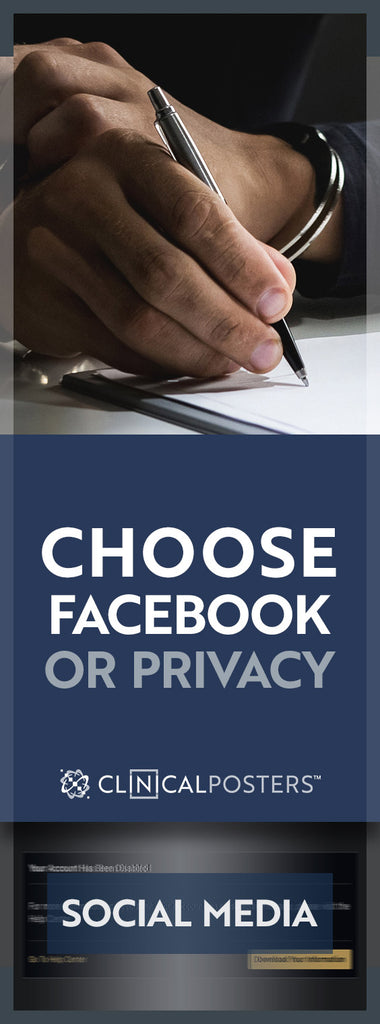My conclusion is that our desire to avoid each other is mutual.
Mutual Dissatisfaction
Quite frankly, Facebook scares me. Everything from their exhaustive sign-up questions to their auto-magic identification of friends is intrusively disturbing. The company literally wants to know everything possible about everyone. It doesn’t help that the company is constantly criticized over privacy violations. Yet, it stands as the most popular social media platform with over 2 billion active monthly users. That’s about how many websites are on the Internet.
Facebook Signup
In an effort to reach out to more customers, I closed an eye to long-standing fears for a moment and cautiously began the sign-up process. Facebook wants to know my name, date of birth, gender, where I went to school, where I work, where I live, my interests, and my friends. There are numerous preferences to control how all this information is shared. This gives users the illusion of privacy.
Facebook CEO Mark Zuckerberg questioned by Senator about user privacy.
To anyone cautious of disseminating personal information, joining Facebook can feel like a police interrogation (or similar to a Senate hearing when Mark Zuckerberg was in the hot seat).
During the first attempt, an account was registered with “Clinical” as the first name and “Posters” as the last. Most questions were answered while refraining from identification of friends. The moment a separate company page for “ClinicalPosters” was created, I was bounced out for suspicious activity. A dialog box asked that I submit a personal photo for manual review (likely now in the possession of Clearview AI). A day later, registration was denied for not using a real person’s name—a violation I was unaware of at the time. Rather than allowing me to make edits, I was locked out. Facebook is doing its best to make the world safer, one block at a time.
Joining Facebook can feel like a police interrogation.
I discovered it is permissible to create a business page as an adjunct to a personal account. In the second account registration attempt, my personal name was used. As soon as I created a business page for ClinicalPosters, I was automatically logged out again for suspicious behavior. I was asked to upload another personal photo. After some time passed, a message indicated the account was disabled. The help page requested more specific identification like a birth certificate, drivers license, credit card, or bank statement. Here is where I draw the line.

Facebook Policies
- Your account must list your authentic name.
- Personal accounts must represent individual people only. It’s a violation of our policies to use a personal profile to represent anything other than yourself (ex: celebrities, pets, ideas, objects, etc.).
- Impersonating anyone or anything is not allowed.
- Maintaining multiple accounts is a violation of our policies.
- Accounts created for the purpose of spamming or harassing others are strictly prohibited.
Facebook is going deeper. University of California, San Francisco (UCSF) and Facebook Reality Labs (FRL) researchers were able to build a brain-computer interface that is capable of accurately decoding dialogue in real time based on brain signals alone. The research could restore communication to millions of patients who have lost the ability to speak after a stroke or spinal cord injury. But knowing what people are thinking can have a much farther implications for a company selling targeted ads for billions of users.
Quora Signup
A social media platform that has given me similar, though less severe problems is Quora. It verifies identities with existing Google accounts. As a result, if you ever change the Google account name, Quora unlinks historical settings. You can become a “new” user.
Quora accounts can be created with either a user-password or social media login. Choosing the former, I linked social media accounts, and filled in most of my profile under a nom de plume. After answering many user questions and gaining a following, that account was flagged for name discrepancy with my Google account. Activities were severely neutered—no access to preferences. A new Quora account was created with Google login for guaranteed synchronicity.
Logging in from different devices opened multiple Quora accounts. One has been purged. None of the historical answers are accessible. I never bothered to complete the profile again and deleted the Quora app from my devices. In time, a third Quora account was set up for advertising using a password rather than social media login.
The bottom-line evaluation of Quora is that it has similar fraud-detection features as Facebook. These may hinder real people desiring to maintain a measure of anonymity from participation.
No social media platform is worth draconian privacy violations for membership. I have managed to exist without Facebook since it was established in 2004. My conclusion is that our desire to continue without each other is mutual.
In contrast to Facebook or Quora, creating an account on the ClinicalPosters website is easy. It simply requires an email and password. Optionally, a name and preferred medical category allows articles and product selections to be personalized after login.
References
- Violating our privacy is in Facebook's DNA. theguardian.com
- Facebook Could Face Up To $5 Billion Fine For Privacy Violations. npr.org
- Facebook CEO Mark Zuckerberg said to be under close scrutiny in federal privacy probe. washingtonpost.com
- What types of ID does Facebook accept? facebook.com
- Soon, Facebook Will Know What You're Thinking. Published Sep 29, 2019. forbes.com



